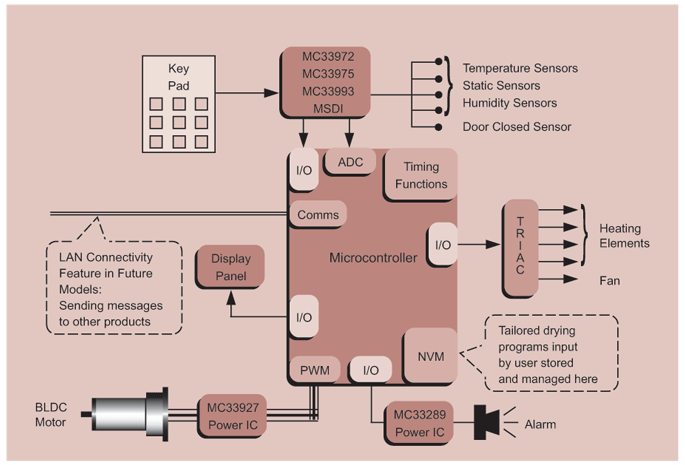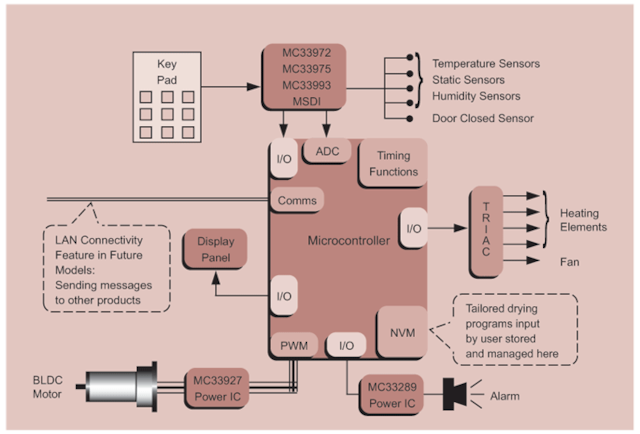The MC68HC705F32 is a member of Our M68HC05 family of HCMOS microcomputers. Its memory configuration comprises 32 KB of EPROM, 920B of RAM and 256B of EEPROM. The on-board features of this device make it particularly suitable for use in highly integrated telephone handsets; the timer and dual-tone multi-frequency (DTMF) generator allow for both pulse and tone dialling and, in addition to set-up parameters and features such as last number redial, the EEPROM can typically store up to 12 telephone numbers of 20 digits, even after power has been removed from the circuit. Other features of the device include the keyboard interrupt facility, which allows a direct interface to a telephone keypad, the LCD circuit, which can drive up to 160 segments of an LCD display, and the analog-to-digital converter (ADC) which could be used, for example, as a volume control for a telephone in hands-free mode.

